A ‘Goat’ Story – When a famous pest becomes the ranger
When faced with a fire hazard and some unhappy shepherds, A Rocha Lebanon knew they needed a new plan — fast.
The fire issue
Summer is hot in the Bekaa valley – a time when heat becomes the enemy, whether human or tree. Particularly for an environmental project, natural fires are a main source of fear, as any biomass substantial enough to sustain life can also become fuel.
So, this year, our team faced many questions:
How can we let plant cover protect the soil from the beating sun without the risk of starting a natural fire? Also, how can we develop a protected area without inciting the rage of local shepherds, now deprived of some grazing land? Would it be possible to let sheep and goats graze in a young forest without destroying the saplings?
Easy solutions often bring more problems. For example, late mowing does not solve the risk of fire, and ploughing would result in erosion and the death of a soil life that’s in a tender stage of regeneration.
In addition, both of those solutions are costly, so we had to find a resourceful arrangement: creatures that love dry grass… sheep and goats!
Therefore, we tried several experiments with a shepherd and his herd of fifty.
First, we asked him to separate the sheep, which only graze the floor, from the goats, which eat the leaves as well. To begin, we only brought in the sheep. Yet both of us were unsatisfied. The grazing was too slow and scattered with just sheep, and the goats – valuable as the only ones to give milk in the late season – were forced to stay fasting on the other side of the fence.
The unexpected solution
Then, we decided to fence off a small area in which the herd would be retained with the help of his assistant shepherds, so they could trample all the grass within the fenced area. But how could we protect the trees from the goats’ hungry mouths, as well as the saplings from such a trampling? The shepherd suggested that we cover all the saplings and bushes of this area with bags. The herd could then graze on fresh grass, and as another advantage, the great majority of the weeds were trampled, resulting in a protective mulch for the soil.
We had discovered a free of charge win-win solution that reduced fire risk in the protected area and provided the herd some pasture in the late season.
Once a pest, this herd became our friend. This is an example of what we call “extended diplomacy”: a human diplomacy between shepherds and environmentalists, and possibly between shepherds and orchard owners, and a non-human diplomacy between goats and saplings.
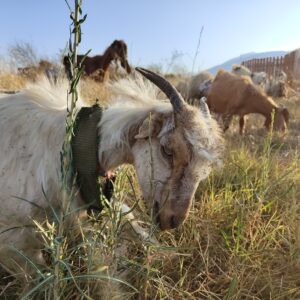
Sheep and goats solution
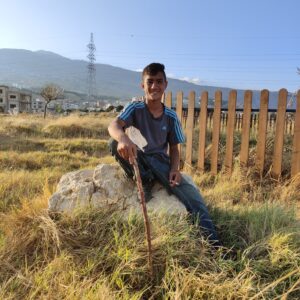
Ayman the sheperd
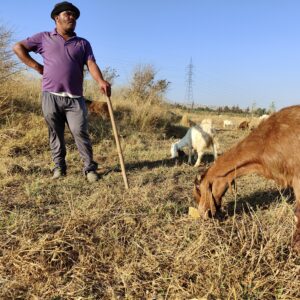
Abbes the sheperd
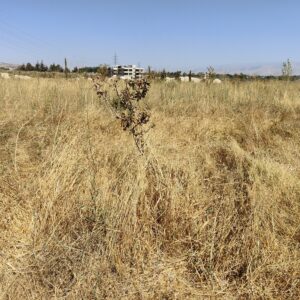
Test area 2 – before
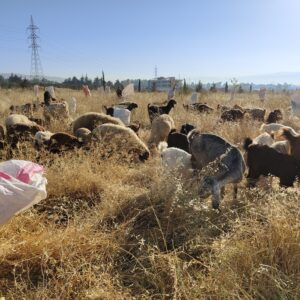
Test area 2 – during
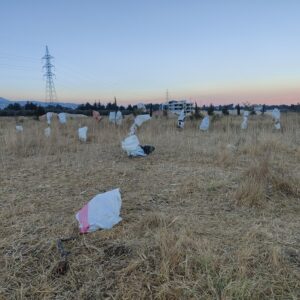
Test area 2 – after